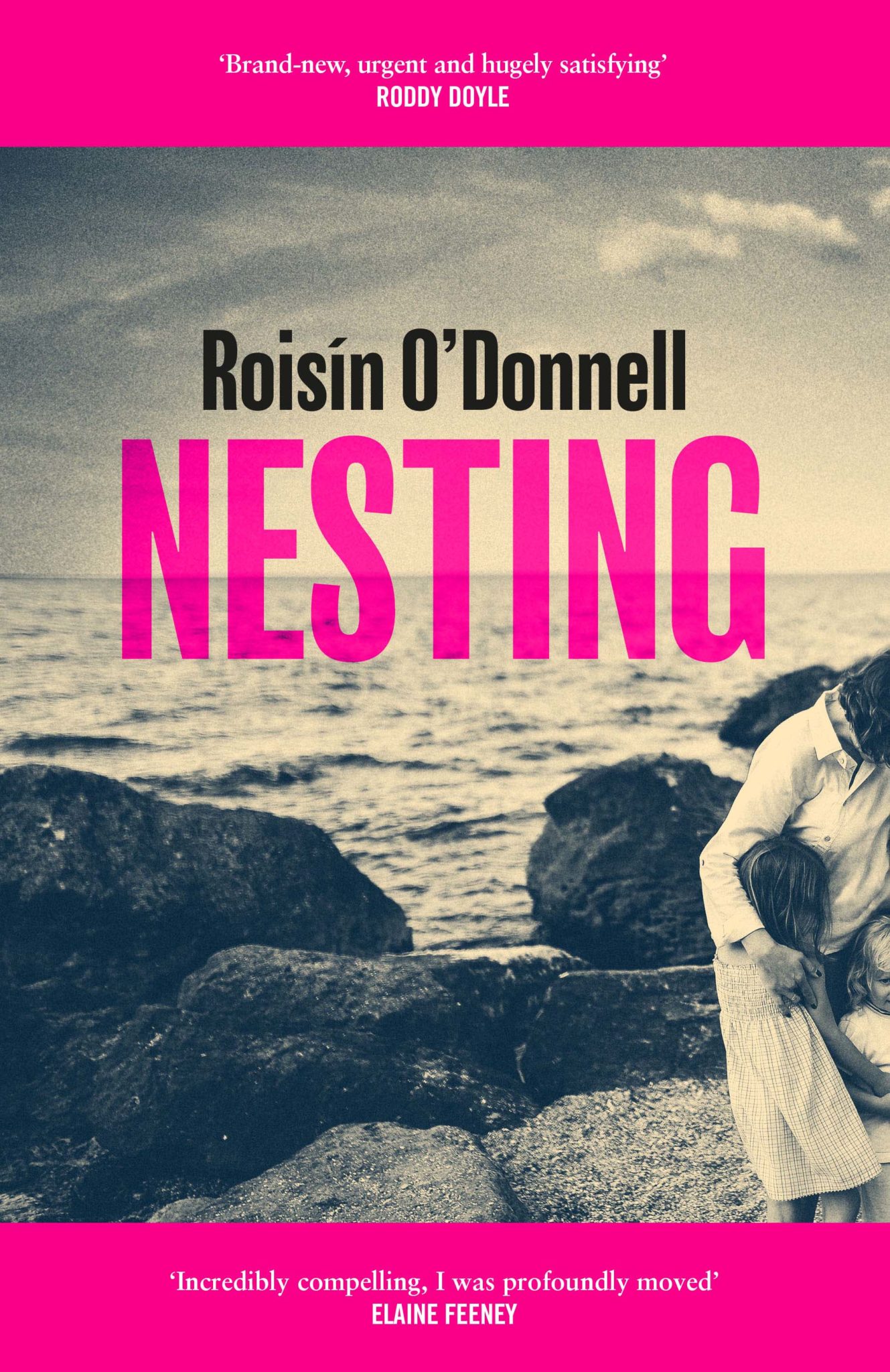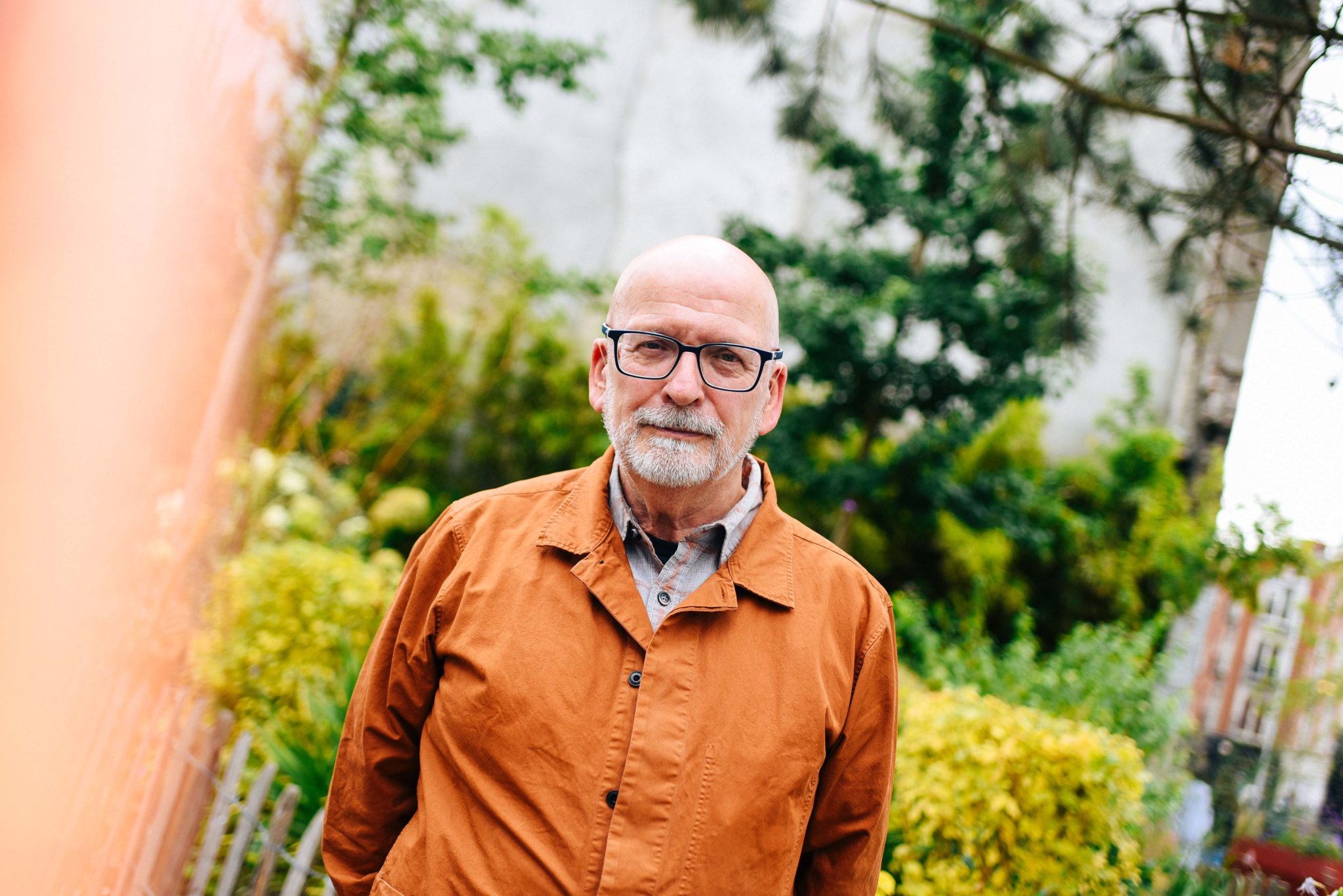- Culture
- 25 Feb 25
Roisin O'Donnell: "It's an issue for everyone, not just women"

Irish author Roisin O’Donnell discusses her superb debut Nesting, a powerful examination of coercive control and abusive relationships.
Roisin O’Donnell’s debut novel, Nesting, focuses on the character of Ciara, and her attempts to extricate herself and her two kids from life with her abusive husband, Ryan. As Ciara leaves their Dublin home and tries to escape to her family in Sheffield, the novel moves with remarkable pace, having the narrative momentum of a thriller, as a number of early reviews have noted.
“It’s funny, because I really do believe that the reader completes the picture,” considers O’Donnell. “Sometimes, as a writer, on a certain level you’re not even really aware of what you’re doing. It’s really interesting hearing readers’ take on this. The pace and the tension really comes from the character of Ciara – Nesting is a very character-driven novel. I certainly didn’t set out to write a book that would be really pacy or anything like that.
“But Ciara is fleeing an abusive relationship, which statistically we all know is the most dangerous time for a woman in that position. She’s desperately trying to find housing, and she’s under pressure from her ex-husband, who’s threatening her with all sorts. So, the tension really came from the situation she’s in.”
Nesting grew out of a short story commission for RTÉ Radio One – read by Siobhan McSweeney of Derry Girls renown – for which O’Donnell focused on the characters of Ciara and Ryan. Eventually, she felt compelled to revisit their story and turn it into a full-length novel, and it’s a very affecting work. Indeed, even as a fan of crime novels and transgressive fiction, certain scenes between Ryan and Ciara – such was their psychological realism – made me feel more uncomfortable than any book I’d read in a long time.
“Oh, I’m sorry!” says Roisin. “With Nesting, I set myself certain limitations. I remember reading something Margaret Atwood said with The Handmaid’s Tale, which was that she wouldn’t allow herself to include anything that hadn’t already happened to women somewhere in the world, at some point in history. So I said, ‘Right, there’s not going to be any physical bruises or violence. I’m not going to fall into those tropes we’re so used to.’ Quite often with stories like this, they do edge towards thriller sort of territory.
“But from research, I knew just how terrifying the psychological control can be, as well as the threat of violence. What was exciting to me as a writer, was asking, ‘How can I convey that, without tripping into having to use physical violence to show it?’ So, I’m glad to hear the level of fear and intimidation did come across. That’s what’s so difficult for women in that position.”
 GreenLight status awarded. Checklist Simon & Schuster Jackets (Final) ranMonday 9 September 2024 at 14:48
GreenLight status awarded. Checklist Simon & Schuster Jackets (Final) ranMonday 9 September 2024 at 14:48How does the author feel we’re doing in terms of the public discourse around these issues?
“I think it has improved compared to say 10 years ago,” considers Roisin. “You’d see more in the news about it – there have been more women coming forward and telling their stories. That’s very powerful, but we have a long way to go. In Ireland, we don’t have a great history of listening to women and their stories. There’s been so much shame and stigma around this subject matter. I actually emailed Roddy Doyle, because I’d seen an article he’d written about his book The Women Who Walked Into Doors. He got a terrible time over that, people felt he shouldn’t be writing about this subject matter, that he was disgracing Ireland and that this should be kept behind closed doors.
 Roddy Doyle. Copyright Miguel Ruiz.
Roddy Doyle. Copyright Miguel Ruiz.“He’s great for breaking those taboos, we are in his debt in that way. He has opened the door for people, to maybe be able to write a book about this subject matter. To date, I haven’t had any backlash like that, but we’ll see how it goes! So far it is positive, in that I can bring out a book like this, and people seem very open and interested in talking about it. That is hopeful.”
Having grown up in Sheffield with Irish parents, O’Donnell moved to the auld sod in 2002, when her father’s work prompted the family to relocate to Navan. Was it always her ambition to write a novel?
‘It was always the dream, even since I was a teenager,” she nods. “Some of the proper adult books I read were Beloved and The Color Purple, and I was mesmerised by them. So I would have always wanted to write a novel at some stage, although I wasn’t planning to write one right at that moment. But it really was just the fact that this short story felt very different from any story I’d written before. I suppose I could see how I could develop it further, but it was a very different process.”
What was the most surprising thing O’Donnell learned writing Nesting?
“Definitely, I would have learned a lot,” she reflects. “There’s a lot of material I’m now so familiar with, that it’s hard to remember I actually wasn’t aware of these things a few years ago. One of the aspects would be around the reality of emergency accommodation. I don’t know if I had much of an idea of what that actually looked like. But I was able to speak to a number of people who had lived in hotels and emergency accommodation. I also spoke to a professor of sociology, who’d done a really detailed study on the impact of hotel living, specifically on families. It’s really fascinating; it’s a paper that should on the desk of every TD in the country.
“That professor spoke a little bit about when you go to a hotel, they’ll have advertisements saying, ‘Get a break away from it all’, or ‘A break from the every day’. But for families who are living there all the time, that’s actually experienced as a rupture in their lives, a negative thing. Quite often in these hotels, they have to to use a separate entrance – they have to use the back stairs. They’re not allowed to use the hotel facilities and it’s like a two-tier system. There’s the shame and stigma associated with that. I wasn’t really aware of that I suppose.”
Roisin further considers the subject of coercive control.
“It’s obviously dark subject matter to delve into,” she continues. “But I was interested in the psychology if it, and it is just mind control. There’s all the different aspects of that, like the use of guilt, fear and shame, and the way a woman can be so isolated from her friends and family. But on the more positive side, you learn about the supports that are available, and the ways in which women can, and do manage, to recover and rebuild their lives.
“Again, I would have spoken to a number of women who had experience of that, as well as an outreach worker from a refuge, who was really good. It was a tough conversation, but she was able to talk about the patterns that they’re seeing, in terms of the women who are reaching out for help. How it’s not just physical abuse, it’s the emotional, psychological and sexual side of things. That’s a huge amount of what they’re seeing. So it was all very helpful, and I think I just wanted Nesting to feel very authentic and genuine. Just to break through the stereotypes, really.”
Reading the character of Ryan, his nastiness prompts you to consider if he has an actual psychological disorder – although as we know, his behaviour is too often the reality of malign male figures.
“I don’t know,” says Roisin. “I suppose you could look at labels like narcissism – definitely labels like that would be relevant to Ryan. But then that’s thrown around a lot as well, isn’t it, without too much understanding. The thing with Ryan is he comes from a really traditional, patriarchal mindset. I think this is at the root of an awful lot of controlling behaviour. He really feels he should be the boss, and that Ciara shouldn’t question anything he says. I remember one woman saying to me, ‘You know, I could have had a perfect marriage as long as I’d never said no.’ I just thought, ‘Well, hang on a minute, that’s not exactly a perfect marriage, is it, if you can never say no.’ Imagine living like that.
“He was an interesting character to write. I wanted to make sure he felt real and authentic, and that he wasn’t a two-dimensional villain. But I also wanted to show positive male characters in the book as well, cos there are men who are impacted by this as well. Women talked to me about how their brothers, their dads, whoever, were devastated by this and so keen to help – and not sure how they could. Unfortunately, what can happen is that, if someone does try and help the woman who’s being abused, it can actually make the situation worse for her.
“So I think it’s an issue for everyone, not just for women. And there are wonderful men. I have wonderful men in my life, my dad and everyone, who are just so supportive of Nesting, and would be keen to do whatever they can to tackle this.
• Nesting is out now.
RELATED

- Culture
- 10 Dec 25
Domhnall Gleeson to be honored with an Oscar Wilde Award

- Culture
- 09 Dec 25








